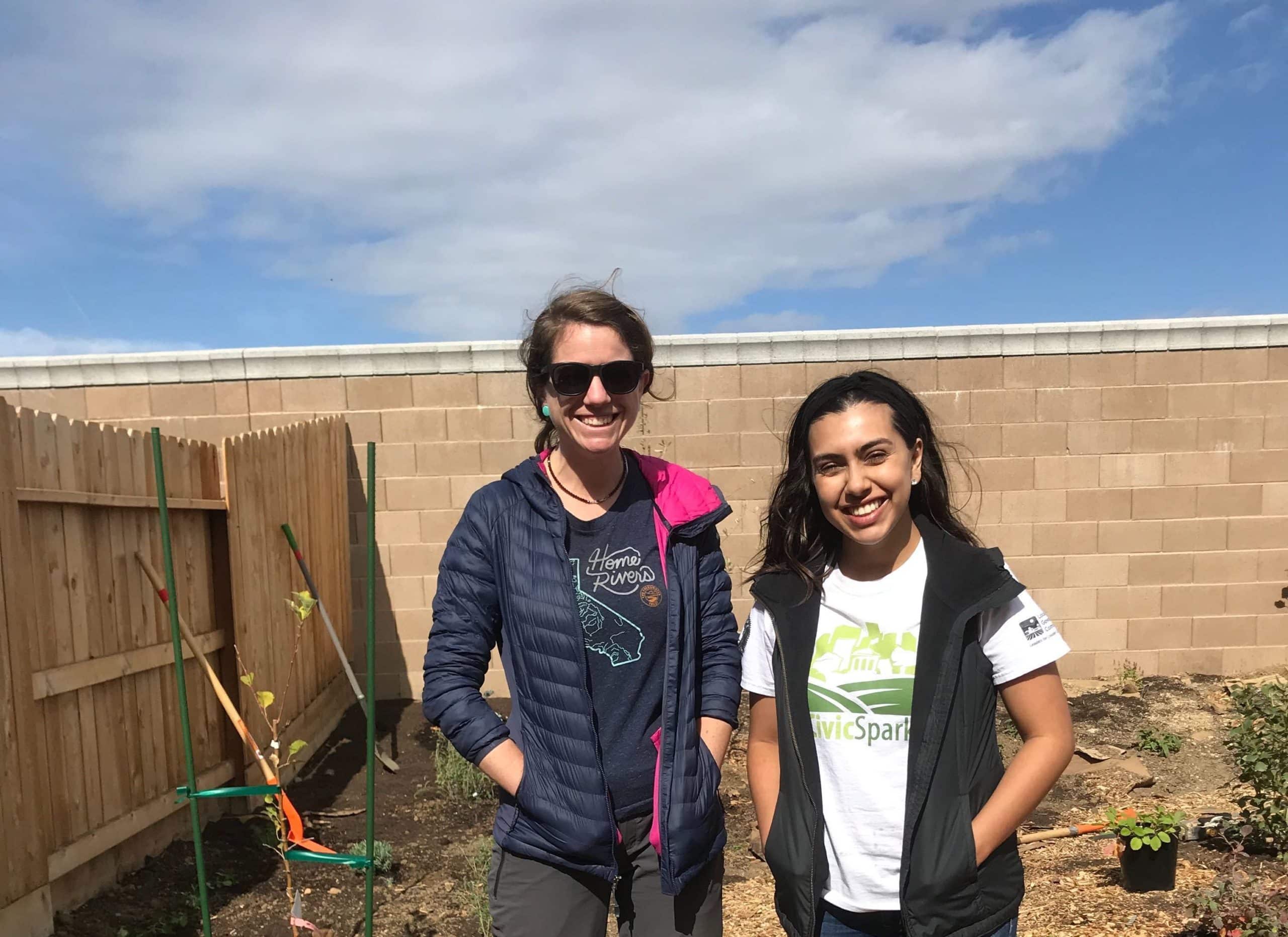TFT fellow brings new communities to the water table
Working at an environmental organization was a pivot in Jacqueline Garcia’s career.
In college, she studied politics and legal studies with a focus on Latin America. For the last nine months, she’s been a fellow with The Freshwater Trust (TFT).
Garcia arrived at TFT through CivicSpark, an AmeriCorp program connecting emerging professionals with host agencies throughout California. Fellows spend 11 months working on community projects to address climate change issues, water resource management, housing and mobility. Garcia’s fellowship focuses on engaging with local communities in the Sacramento area about their freshwater resources.
“My interest in this project and TFT had to do with its focus on people,” said Garcia. “I’ve always been attracted to the people’s side of policy. That’s what always pulled me into immigration and now environmental issues, too. Plus, this is my community.”
Born and raised in south Sacramento, Garcia is a first generation Mexican-American. She’s one of five siblings and wanted to find a position close to family.
“Jacqueline did not come to TFT with a background in environmental studies or water resource management,” said Becky Rittenburg, conservation programs manager with TFT. “But with her unique experiences in community engagement and immigration policy, and her familiarity with and affinity for the regions that we work in, we knew she’d be a great fit.”

From left: Becky Rittenburg and Jacqueline Garcia
In 2014, during one of the worst drought years in the state’s history, California passed the Sustainable Groundwater Management Act requiring governments and water agencies in key areas to develop and implement Groundwater Sustainability Plans (GSPs) to sustainably manage their local groundwater resources.
Understanding the critical need to engage different voices in the development of these plans, TFT pursued and won a grant from the California Department of Water Resources, funded through Proposition 1, to engage communities defined by the state as “disadvantaged” in conversations and planning around groundwater sustainability. To that end, TFT and Garcia have worked with local partners to conduct community assessments, develop groundwater education programs, support data collection for the groundwater modeling team, and create outreach materials in multiple languages.
“While domestic use is a small fraction of total groundwater use, those water supplies are critically important to so many local communities in California,” said Erik Ringelberg, California Director with TFT. “Typically, there are no other supplies available to replace groundwater, leaving localities with few good options in the face of declining and sometimes contaminated water sources.”
The Solano subbasin is the center of TFT’s work with disadvantaged communities. Housed within the Sacramento Valley, the basin supplies groundwater for the cities of Dixon, Rio Vista and parts of Vacaville. Based on Census data, several rural communities near these cities meet the state’s criteria for disadvantaged communities, where incomes are less than 80% of the state’s median household income.
“I come from a diverse, minority community and often groups like these – in and around where I am from – are left out of all kinds of conversations, not just ones about water,” said Garcia. “TFT is working to target these groups in particular because we want them to be actively part of this conversation.”
Engagement with rural communities, particularly domestic well owners, in groundwater sustainability planning efforts has been identified as a statewide challenge. Lack of access to information and economic realities often prevent certain individuals and families from actively engaging in management decisions that affect crucial resources. Attending public meetings may require time off from work or child care. Language barriers can also create difficulty in accessing information.
As part of her fellowship, Garcia has led the charge on a community wide “needs assessment” with the Local Government Commission to characterize and map how communities rely on groundwater throughout the subbasin and develop strategies for engagement. This involves mapping rural residential domestic wells and small community water systems, such as schools, mobile home parks, family-operated marinas, and churches that are not serviced by a municipality but instead rely on their own wells for clean, accessible groundwater for their communities.
“Many folks don’t know where their water comes from. Nor do they think they have a meaningful stake in water management. The truth is, however, local water management has big implications for the health of their communities for present and future generations,” said Garcia. “Many of these communities are often entirely dependent on groundwater and, therefore, most significantly impacted by unsustainable practices.”
To help address language barriers, Garcia also developed a mobile-friendly, bilingual website and other outreach materials that share information about groundwater, the Sustainable Groundwater Management Act, and how to engage in local planning efforts. She is also providing Solano Resource Conservation District with bilingual education materials and surveys to distribute at community events and at schools for students to share with their families.
“In issues of equity, you have to be explicit,” said Garcia. “Water issues are very complex in California, but they impact everyone. It’s a common resource and if we want all Californians to know about water and have safe and affordable access to it, we have to be intentional in our actions.”
In the coming months, TFT and its the project team will be conducting a groundwater user survey across the basin, help form an Advisory Committee that represents the diverse interests of the basin. There will also be further outreach and a series of stakeholder meetings to comment on and inform sections of the plan.
“The critical next step is to translate and integrate the diverse needs of groundwater- dependent communities and ecosystems into the Groundwater Sustainability Plan. Doing so will create a robust and actionable roadmap towards a more resilient water supply. ,” said Rittenburg. “Through this grant, we will also continue to work with our partners to provide K-12 and community groundwater education to build water literacy among these future stewards of the resource.”
Jacqueline will finish her fellowship with TFT in July. She has plans to go back to school next fall to earn a Master’s degree. She wants to focus on the nexus between forced migration and climate displacement– a merging of her two passions.
“I guess this actually hasn’t been that much of a change in trajectory,” said Garcia. “Environmental issues are people issues, and people and community have always been my focus.”
April 14, 2020#California #disadvantaged communities #equity #groundwater #Sustainable Groundwater Management Act
Enjoying Streamside?
This is a space of insight and commentary on how people, business, data and technology shape and impact the world of water. Subscribe and stay up-to-date.
Subscribe- Year in Review: 2023 Highlights
By Ben Wyatt - Report: Leveraging Analytics & Funding for Restoration
By Joe Whitworth - Report: Transparency & Transformational Change
By Joe Whitworth - On-the-Ground Action – Made Possible By You
By Haley Walker - A Report Representing Momentum
By Joe Whitworth

